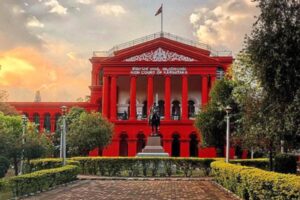
The Prevention of Money Laundering Act (PMLA) of 2002, enacted by the Government of India, serves as a crucial tool in the fight against money laundering and the proliferation of illicit income. This legislation aligns with global initiatives, particularly those spearheaded by the Financial Action Task Force (FATF), to curb money laundering and terrorism financing activities.
The primary objective of the PMLA is to prevent money laundering and facilitate the confiscation of assets acquired through such illicit practices. Its jurisdiction extends across India, providing a legal framework to combat financial crimes and uphold integrity in financial systems.
What are the Key Features of the PMLA Act?
1. Money Laundering Definition: The PMLA Act defines money laundering as engaging, directly or indirectly, in any activity linked to the proceeds of crime, encompassing concealment, possession, acquisition, or utilization, and portraying it as untainted property.
2. Punishment for Money Laundering: The Act stipulates stringent penalties for individuals convicted of money laundering, including imprisonment of up to seven years and fines, reflecting the Indian government’s grave stance on the offense.
3. Attachment and Confiscation of Property: The PMLA grants authorities the power to seize and forfeit properties suspected to be “proceeds of crime,” preventing offenders from utilizing assets derived from illicit activities.
4. Obligations for Financial Institutions: Banks and financial entities must adhere to stringent requirements under the PMLA, including client identity verification, record maintenance, and reporting obligations to the Financial Intelligence Unit-India (FIU-IND).
5. Adjudicating Authority: An Adjudicating Authority, akin to a civil court, is established to oversee property confiscation cases under the Act, ensuring procedural fairness in attachment and forfeiture proceedings.
6. Appellate Tribunal: The Act provides for an Appellate Tribunal to hear appeals against decisions made by the Adjudicating Authority and other bodies under the Act, offering recourse for aggrieved parties.
7. International Cooperation: Recognizing the global nature of money laundering, the PMLA facilitates international cooperation through mutual assistance mechanisms among countries, bolstering enforcement efforts across borders.
Understanding the Significance and Impact
The PMLA Act represents a crucial advancement in India’s fight against financial crimes and its commitment to global standards in combating money laundering and terrorism financing. Beyond merely penalizing offenders, the Act imposes rigorous measures on financial institutions to enhance transparency and accountability in transactions, serving as a deterrent against illicit activities.
By stemming the circulation of unlawful funds, the PMLA Act safeguards the integrity of the financial system and fosters economic development by preventing the misuse of financial channels for illegal purposes.
Read More: Supreme Court, Delhi High Court, States High Court, Other Courts, International




